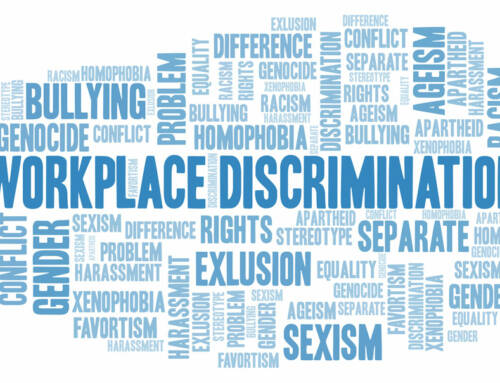The workplace has changed significantly in 2020. It seems that many of these changes might be permanent, as many employers transition toward a hybrid work form the office/work from home environment. Workplace harassment issues have changed as well, but in in-person and virtual workplaces alike, sexual harassment is a serious problem.
If anything, virtual work environments can increase sexual harassment. Virtual environments decrease formality and professionalism, and according to some observers, formality and professionalism are two of the biggest barriers which prevent sexual harassment.
Workplace harassment is not just inherently harmful to victims. It also affects their physical and emotional health. Sexually-harassed workers have a much higher rate of serious medical problems like high blood pressure, anxiety, and sleep disorders.
Direct Sexual Harassment
The major forms of direct sexual harassment are largely unchanged in virtual work environments. However, the means are different.
Hostile environment harassment is behavior which makes the workplace toxic for certain people. Examples include repeated jokes, sexually explicit computer wallpaper, and semi-inappropriate touches. This kind of harassment is especially pervasive because, in many cases, the perpetrators do not think they are doing anything wrong and believe the victims are being overly sensitive.
Quid pro quo harassment is any offer, direct or subtle, to trade any preferential treatment for any sexual behavior. In a virtual work environment, that could include offering preferential treatment to women who dress provocatively for Zoom meetings.
In the physical world, such harassment is relatively easy to identify. In the virtual world, it is usually less apparent. Some examples include:
- Text Messages: Many people think before they speak, but they post or send without filters. That’s especially true when people work from home, since the line between professional and personal conduct is blurry.
- Video Comments: On a similar note, many people feel bold enough to make comments online that they would never make in person. Generally, if a comment makes you uncomfortable, there may be the beginnings of a hostile environment claim.
- Social Media Stalking: This may seem almost a staple of social relationships. But professional relationships are different. Unfortunately, some people do not appreciate the difference, and victims get hurt.
Employers are not just responsible for employee or manager sexual harassment. They are also responsible for third party harassment, if they knew about it and were in a position to prevent it. For example, especially during video meetings, some employers tolerate behavior in clients that is clearly unacceptable.
Indirect Sexual Harassment
If company rules allow it, always record video meetings. These recordings are important evidence in claims that often degenerate into he-said/she-said affairs. Since the burden of proof is so low (a preponderance of the evidence, or more likely than not), compensation is often available in these situations. But, the more evidence, the better.
Retaliation, or indirect sexual harassment claims, avoid this issue altogether. Many employers retaliate against people who make reports, cooperate with investigators, or encourage other victims to report sexual harassment. Some retaliation examples include:
- Formal or informal written or verbal warnings
- Loss of business opportunity
- Reassignment
- Demotion, or
- Termination.
Typically, retaliation victims must show a temporal connection and an excessive reaction. Assume Sarah reports her supervisor in March. In April, her boss demotes her, allegedly because of a poor attendance record. But Max has a similar record and was not similarly disciplined. These facts are probably sufficient to prove retaliation by a preponderance of the evidence.
Employer Responsibilities
When sexual harassment happens, employers have a chance to do the right thing before a New York sexual harassment lawyer intervenes. A proper investigation and proper reaction usually goes a long way toward healing and preventing further incidents.
Unfortunately, many employers view victims as troublemakers or people looking for leverage against others. If employers do not conduct an efficient, transparent, and fair investigation, that failure could be an independent sexual harassment claim.
Efficient investigations begin promptly, are thorough, and do not drag out overly long. Transparent investigations at least mean the investigators do not meet behind closed doors. A record of proceedings is even better. Fairness means the outcome is related to the evidence presented. That outcome usually includes some compensation for the victim, such as reinstatement to a former position, and some punishment for the actor, such as a demotion or written warning.
Workers have the right to a harassment-free physical or virtual environment. For a confidential consultation with an experienced civil litigation attorney in New York, contact Marie Napoli.






